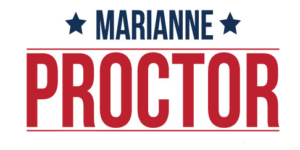Certificate of need laws create medical monopolies and hurt Kentucky’s most vulnerable.
By Marianne Proctor and Jaimie Cavanaugh | Opinion Contributors to Courier Journal
Louisville entrepreneur Dipendra Tiwari saw a problem and responded in 2018. Nepali-speaking refugees needed nursing care and other services in their native language, so he and a business partner decided to fill the void.
Their solution was Grace Home Care, a home health agency focused on the Nepali-speaking community. Yet before Tiwari and his partner could open, they found themselves caught in a policy debate that Kentucky lawmakers have slow-walked for more than 40 years.
Certificate of need laws are about money
Nobody in the commonwealth can launch or expand health care services without a government permission slip called a certificate of need or CON. The regulation has nothing to do with health and safety. Facility licensing boards already exist to ensure high standards of care.
CON laws are about money. They limit competition for established providers, clearing the field for health care monopolies. Patients have less access. Doctors and nurses have less mobility. And entrepreneurs have less opportunity to disrupt the status quo.
Big hospitals love the protectionism in Kentucky, where getting a CON is expensive, slow and sometimes impossible. Many potential investors do not bother, but Tiwari and his partner tried anyway. They even filed a constitutional lawsuit. The state battled them to the 6th U.S. Circuit Court of Appeals and ultimately blocked their bid to help their neighbors.
Certificate of need laws:Kentucky has created a legal monopoly for healthcare.
Tiwari was stunned. He did not think such a rigged system could exist in the United States, which he saw as a land of opportunity when he immigrated from Nepal in 2008. Nobody stopped him when he earned an MBA and opened an accounting practice. Tiwari could have chosen almost any industry without state interference. But health care has a special carveout from the normal rules of fair trade.
Policymakers know that CON laws create a rigged system
Policymakers are aware of the rigged system. Federal antitrust agencies sounded the alarm as far back as the 1980s. “By their very nature, CON laws create barriers to entry and expansion to the detriment of health care competition and consumers,” the Department of Justice has warned.
Additional evidence comes from a supermajority of national studies. A 2023 report from the Institute for Justice, the public interest law firm that represented Grace Home Care, examines 128 papers describing more than 400 tests. Nearly 90% of these tests show negative or neutral results from CON laws, and negative results are five times more likely than positive results.
Kentucky even commissioned its own study in 2013. Deloitte, the consulting firm hired for the job, looked at the evidence and recommended suspending or “discontinuing the CON program for health agencies.” Instead of taking this advice, Kentucky largely ignored it.
Wake up!We are still in a pandemic and vaccines are our best defense against long COVID.
The timid approach backfired during the COVID-19 pandemic. Recognizing the need for greater flexibility, Kentucky regulators scrambled to waive CON application requirements. Gov. Andy Beshear followed in 2023 with two additional emergency measures: He suspended CON provisions for ambulance services and psychiatric care beds.
The executive orders all but admit that CON laws hamper health care access. But rather than follow the evidence, state lawmakers opted for more talk in 2023. The General Assembly established a CON task force that published its findings on Dec. 14, 2023, after months of hearings. The result is disheartening. What Kentucky needs, the commission decided, is more study.
Apparently, 40 years is not enough. Kentucky families might disagree. What they need is action.
Bills to reform certificate of need in Kentucky may help
Three bills filed in the state House on Jan. 9, 2024, can help. HB 204 would speed up CON applications and prevent competitors from interfering in the process. HB 203 would remove CON requirements for needed services including mental health, rehabilitation, home health, dialysis services, and birth centers. And HB 202 would eliminate CON requirements for building projects under $10 million and equipment purchases under $5 million.
Critics warn that removing the CON safety net would leave established providers vulnerable, especially in rural areas. But the issues have been hashed and rehashed, and the evidence does not support the alarmism.
CON laws are bad for vulnerable populations everywhere. Nepali-speaking refugees in Louisville suffer when the state limits health care access, and so do rural Kentucky families. More than 40 years of evidence confirms it.
Rep. Marianne Proctor represents Kentucky House District 60, which covers part of Boone County. Jaimie Cavanaugh is a certificate of need specialist at the Institute for Justice in Arlington, Va.

